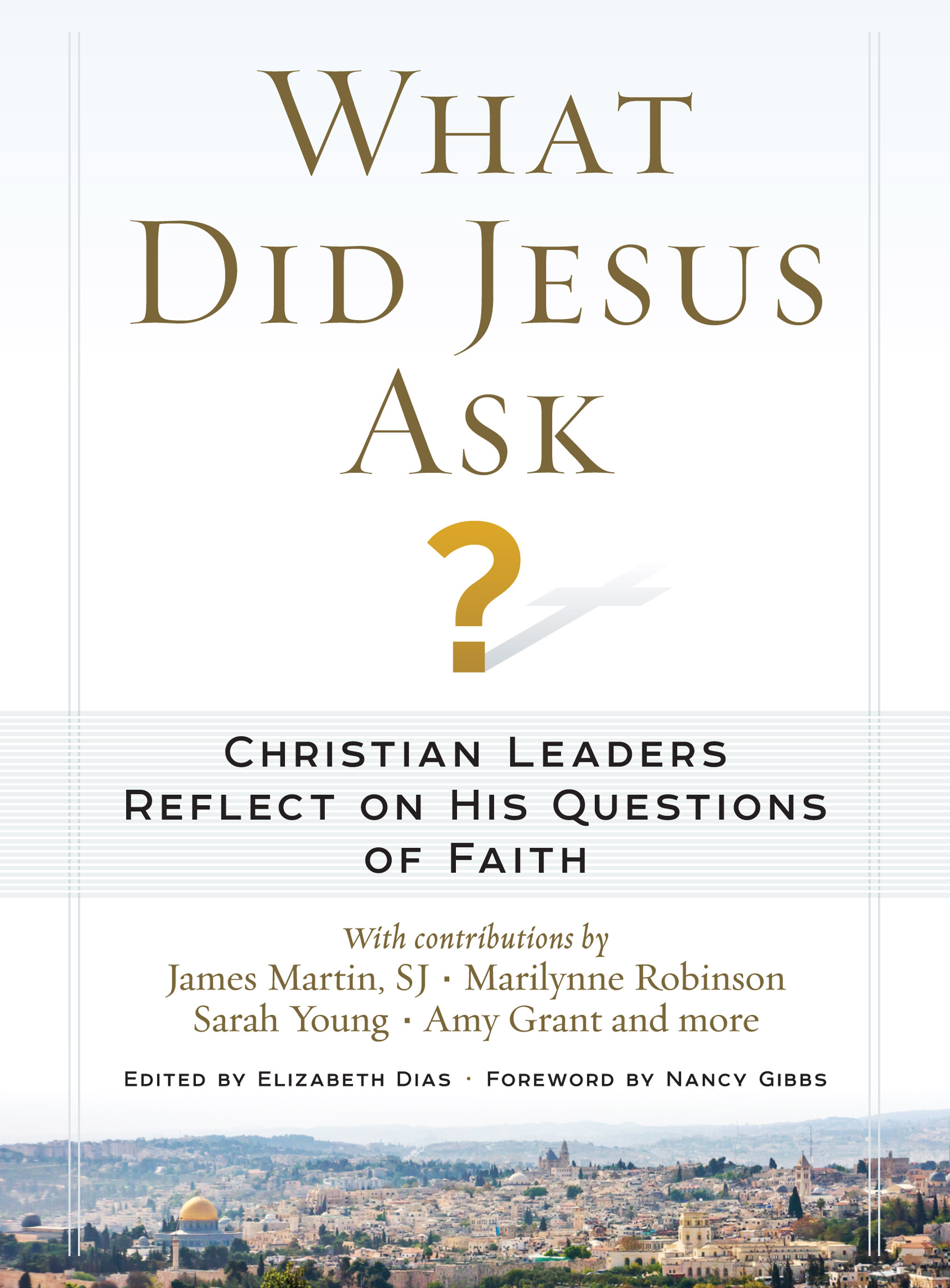
The following is an excerpt from What Did Jesus Ask?, edited by Elizabeth Dias and published by TIME Books, available from Amazon or Barnes & Noble. Read other excerpts from the book here.
“Who is my mother, and who are my brothers?”—Matthew 12:48
Once after Mass, a youngster asked me, “Why do you call us brothers and sisters? You’re not my brother.” Reasoning that he already had a family, my young interlocutor wondered how we could be brothers. I responded, “Ah, but I am spiritually your brother because we are all members of God’s family.” After the boy received a nod from his parents, he said approvingly, “Wow, I didn’t know that.”
In the Gospel, we hear Jesus ask, “Who is my mother? Who are my brothers?”
This had to have been confusing to his listeners. After all, his family was standing right outside. So what did he mean?
When Jesus next answers his own questions—“Whoever does the will of my heavenly Father is my brother, and sister, and mother”—we can see he is teaching us to broaden our horizons, to think beyond the idea of natural family. At the same time, he is inviting us to be part of his own family—one big family of God.
Jesus’ disciples throughout history—the church—have listened to his words and understood that he means more than a metaphor or a poetic figure of speech. In asking these questions and giving this answer about being his family, Jesus shows us that he came to do more than teach us a philosophy. Above all else, he wants a personal relationship with us. He wants to share his life with us. In addition to the families we grow up in, as that youngster at Mass discovered, the Lord asks us to be part of a real spiritual family in communion with him by doing the will of God.
So the real questions we must ask ourselves are: What is the will of Christ’s heavenly Father so that we too might be his family? More personally, what is God’s will for us? What does it mean for you and for me to be Jesus’ mother, brother, sister?
Throughout his ministry, Jesus said he came to do the will of the Father who sent him (e.g., John 6:38). He ministered to the sick, brought glad tidings to the poor and proclaimed liberty to captives. In the Sermon on the Mount, the Lord told of the new way of life. It involves the merciful, those who hunger and thirst for righteousness, those who mourn, the peacemakers and the poor in spirit. Later in his ministry, his disciples are challenged to envision a world in which the hungry are fed, the thirsty are given drink, the stranger is welcomed and the naked are clothed. He says to forgive one another and be a light of goodness to the world. Finally, Jesus gave up his life on the Cross and rose again on the third day to save us from sin and gain eternal life.
In his words and in his deeds, the Lord reveals that he is love personified and that his will is simply that we love him and love one another. “As I have loved you, so you also should love one another” (John 13:34). Loving one another, giving of ourselves, taking the other into our hearts—this is what it means to be family. This is what it means to be Jesus’ mother, brother, sister. To more fully understand Jesus’ questions—“Who is my mother? Who are my brothers?”—we need to remember that he is not just any man; he is the Lord. The life he wants to share with us as part of God’s family is a divine, eternal life. Having broken the chains of death, he invites us to share in his Resurrection.
Jesus, the Son of God, asks us to call God “Father” as well. As he did with Nicodemus, he invites us to be born again, this time of the Spirit (John 3:1–21). A new life in God’s family begins partic- ularly in the waters of baptism as the limits of the old order begin to pass away. “See what love the Father has given us, that we should become children of God and so we are” (1 John 3:1).
As children of God, necessarily we are all then the new spiritual brothers and sisters of Jesus, one family united in love. Is this not the meaning of what Jesus asks with his questions—to be a people who bear fruit through our love, as a mother does, to care and respect one another and to reach out to embrace one another with all the affection of brothers and sisters? Is this not in a very real and profound sense exactly what this world needs today? Would we not all be blessed if, through our love, we were to transform our society into a culture of compassion, understanding, mutual respect and solidarity?
As we journey through life, encountering Jesus along the way, he engages us in dialogue. Here, we can easily envision his questions “Who is my mother? Who are my brothers?” to be a request for a show of hands. Jesus asks us—you and me—“Will you be my mother, my brother, my sister?” He asks us, as he did with Peter, “Do you love me?” (John 21:15). How do we respond?
Cardinal Donald Wuerl is the Roman Catholic Archbishop of Washington.
More Must-Reads from TIME
- Donald Trump Is TIME's 2024 Person of the Year
- Why We Chose Trump as Person of the Year
- Is Intermittent Fasting Good or Bad for You?
- The 100 Must-Read Books of 2024
- The 20 Best Christmas TV Episodes
- Column: If Optimism Feels Ridiculous Now, Try Hope
- The Future of Climate Action Is Trade Policy
- Merle Bombardieri Is Helping People Make the Baby Decision
Contact us at letters@time.com